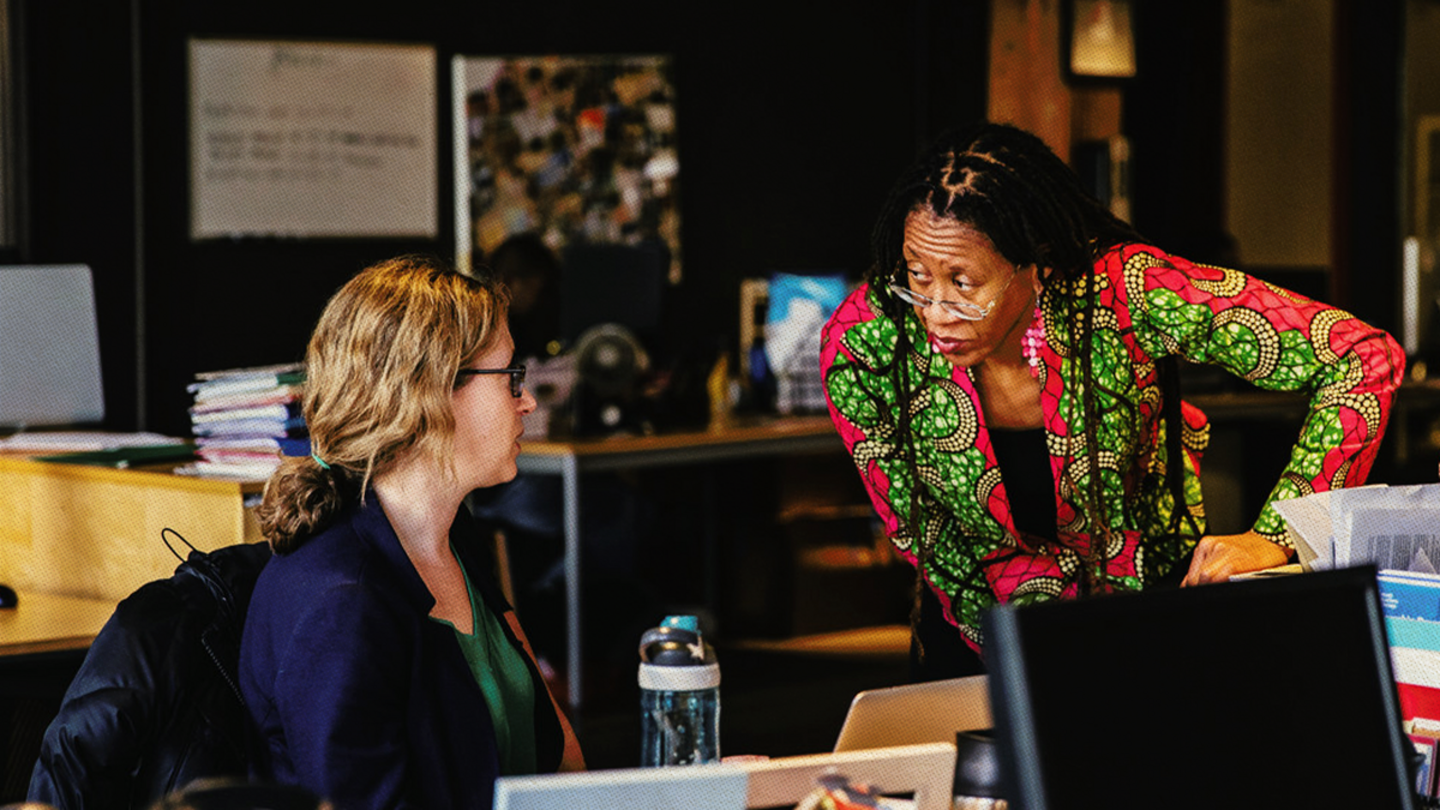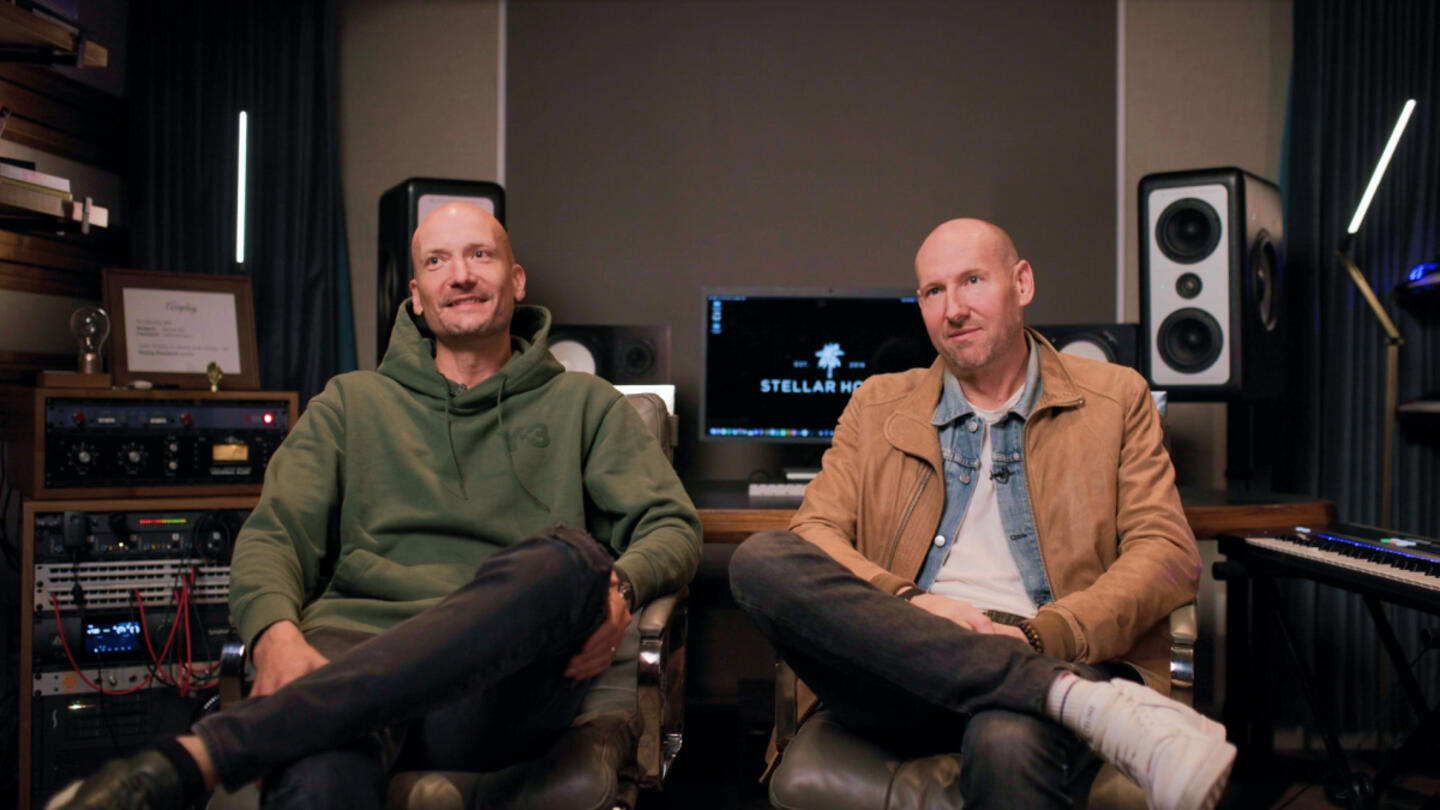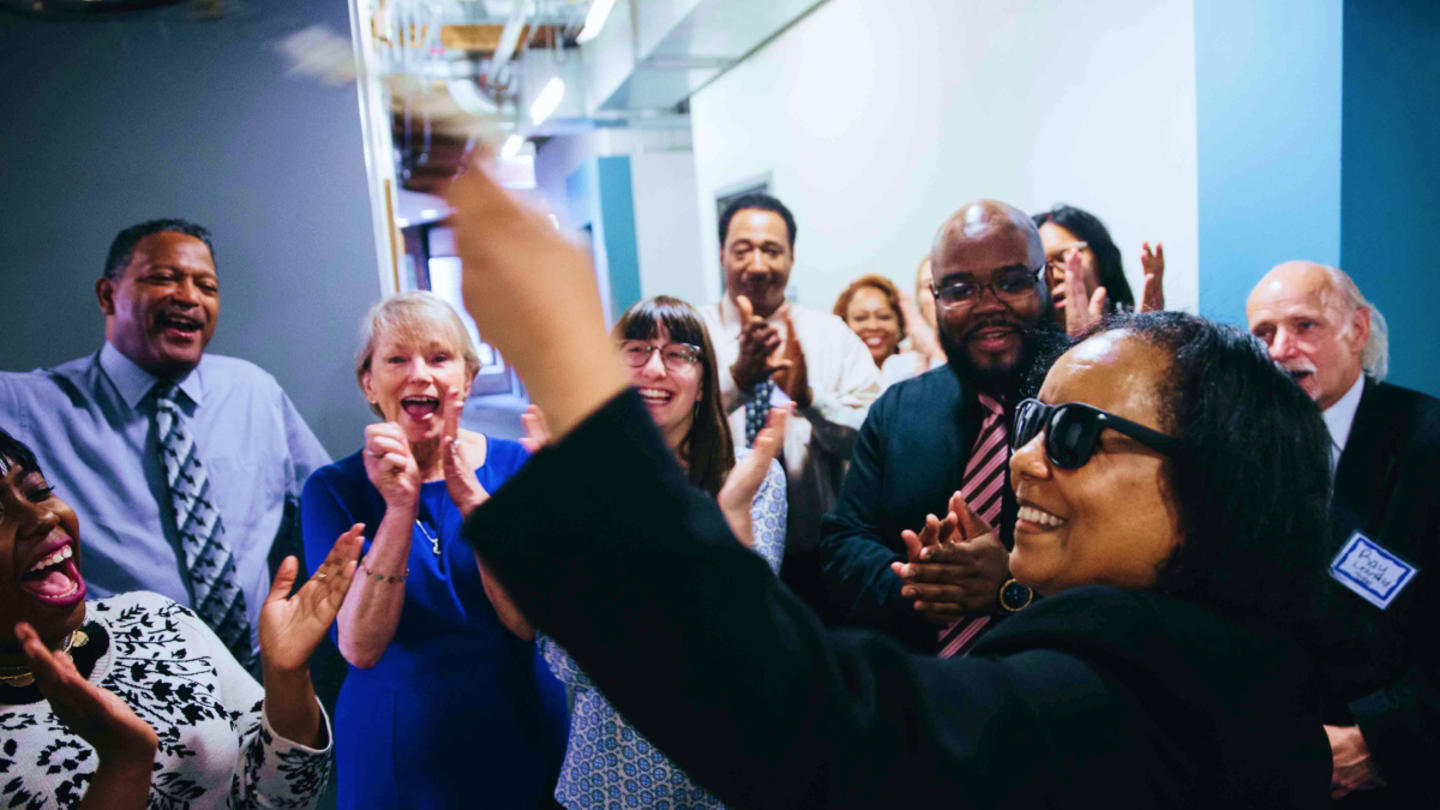“You’ll never work for more than $10 an hour.” This was the message Jeanette heard repeatedly while serving time in federal prison. And she believed it.
Like most people who walk in the door of Chicago-based Cara Collective, Jeanette felt beaten down by her choices and circumstances. “She did not think anything beyond a $10-an-hour job was going to be in her future,” said Kathleen St. Louis Caliento, CEO of Cara, a workforce development organization. While low-wage jobs are valuable for many reasons — gaining experience, getting entry into a field, transitioning careers — Jeanette wanted more. Despite her past, she continued to hope for a fulfilling life and career.
The reality is that while external barriers such as prior incarceration, homelessness, and addiction are more visible, they only scratch the surface of the employment challenge. These obstacles often stem from deeper internal struggles like trauma, lack of self-worth, and depression, which are critical to address for sustainable success.
Caliento likes to say that Cara empowers people to “find themselves and find jobs,” in that order. What makes Cara’s approach uniquely effective is its emphasis on "dignity of choice." Honoring the choices and aspirations of individuals like Jeanette, who face difficult social and economic challenges, honors their self-worth. It empowers them to address internal struggles, rebuild their confidence, and develop resilience, ultimately becoming valuable assets to the businesses and communities around them.
In 33 years, Cara has placed more than 8,000 people in 14,000 jobs, with a 65% retention rate in the first year. “We’re helping people release some of the noise and some of the myths that they've been fed about themselves and giving them the confidence that they need to actually succeed,” said Caliento. “We’re reminding them they still do deserve the best that life has to offer.”
Dignity of choice makes people feel seen and valued
When Jeanette left prison, she was weighed down by her past and how it would be perceived by others. Societal stigmas associated with barriers like prior incarceration, addiction, or homelessness are both powerful and toxic. As long as Jeanette believed she had ruined her life and should settle for any job, she felt powerless to change her situation.
According to Caliento, it’s a common tale. Many of Cara’s participants believe “the narrative that they will never get a job that is worthwhile, they'll never be able to get out of their situation, they are the sum of their mistakes,” she said. It erodes their sense of worth.
This is why helping individuals find a career path must go beyond job placement. Career coaching has been a critical aspect that has driven success for Cara participants. Instead of just placing someone in a job, coaches help people identify their gifts and aptitudes and help them redefine their identity and purpose. Personal transformation begins with offering individuals choices, like asking them what they want to do for a living or showing them what’s possible and then giving them space to decide.
It isn’t as simple as it sounds. People dealing with immense challenges often lose sight of their aspirations and self-identity. They’re typically in survival mode, feeling overwhelmed and like they don’t have the capacity, time, or opportunity to connect to what gives them meaning. They may even devalue themselves as not worth the effort.
Empowering them to make decisions for their own lives is a profound paradigm shift — one that needs to happen if they are going to feel fulfilled in work and life. Cara calls this “dignity of choice.” Giving people choices tells them who they are matters and what they are passionate about and their unique ability to contribute to society are worth discovering. It affirms their inherent worth as a member of the community. Helping them discover their purpose is like supporting them while they get their bearings and chart their own path. They feel seen, valued, and like they have potential.
“If you're thinking there’s only one job you can do, let's open up your world,” said Caliento. Jeanette’s first job after incarceration turned out to be a janitorial position with Chicago Transit Authority. She admitted to being a bit disappointed, but not devastated. Before, she might have settled for the job as her long-term future, but her experiences at Cara empowered her to envision a different future for herself. Cara staff members encouraged her to aim higher.
Jeanette worked hard as a janitor, and she applied for managerial roles at every opportunity. She eventually became a senior manager, overseeing CTA's Second Chance Program and inspiring others on paths similar to hers. In a watershed moment, Jeanette spoke at a brunch for women leaders at CTA. She invited those hired through the Second Chance Program to stand, revealing a significant number of successful women — including herself.
The $10-an-hour-job she would never break out of? “She's making six figures now,” said Caliento. “She bought her house, and she’s able to provide for her family. She really, truly has transformed her life.”
Sign up for Stand Together's Rethinking Work & Learning newsletter to get the latest stories, ideas, and trends on the future of employment.
The value of an employee on a self-chosen career path
So what impact does this approach have on employers? Caliento explained that Cara graduates are more resilient, stay longer at their jobs, and are assertive in terms of developing themselves and seeking additional career opportunities within the business. Finding out what’s important to them is a critical element of that. “No one's going to stay at a job that they despise going to or that does not bring them joy or does not speak to their skill set,” said Caliento.
According to Gallup, employee well-being is associated with higher company performance — including increases in customer satisfaction, employee productivity, and profitability. Likewise, research from the University of Warwick found that employee happiness increases productivity, engagement, creativity, and retention. Liking your job and owning your choices are important contributors to employee happiness and company success.
Deloitte, a longtime supporter of Cara, benefitted from an employee who had chosen her career path instead of settling for just any job.
Briggette came to Cara with a clerical background and knew she wanted to continue on that path. She turned down countless opportunities to interview for other types of positions because they didn’t align with her goals. “It's not that I don’t want to go [to interviews] or that I think I'm too proud for them. I just know what I want, and when I see what I want, that's what I'm gonna get,” she told Caliento, who encouraged Briggette to keep her mind open.
Despite investing in Cara strategically and financially, at the time, Deloitte had yet to hire any Cara participants — until Briggette. She and Deloitte were first introduced when a team from the company came to Cara for their annual Impact Day — a volunteering day when Cara hosts more than 50 Deloitte team members who participate in Cara programming and volunteer with job seekers. Briggette took to the Deloitte team that day and vice versa. She knew this was the company she wanted to work with, and the Deloitte team agreed. A month later, she was the company’s first Cara hire. Briggette was thrilled. “This is what I waited for!” she told Caliento.
“Deloitte won the lottery with her, truly,” Caliento said. “She continues to give 2,000% every single day. I'm close with the managing director of that office, and we have an incredible partner who's on our board, as well. I get stories from them every once in a while about how great it is to pass by Briggette in the morning and see her smiling face and feel her energy and how incredibly valuable she's been to the team there.”
Since hiring Briggette, Deloitte has been working with Cara Plus, an extension of Cara Collective that helps employers rethink policies and perspectives to become more inclusive in their hiring. The company has set ambitious goals for adopting skills-first hiring practices.
Cara’s numbers are impressive, but they’re just numbers. What they don’t capture are the dramatic changes happening in individuals — changes like shedding society’s negative expectations, a renewed purpose in life, and a paradigm shift from helplessness to personal worth and fulfillment.
“The people that we serve deserve dignity of choice,” said Caliento. “We all do.”
***
Cara Collective is supported by Stand Together Foundation, which partners with the nation’s most transformative nonprofits to break the cycle of poverty.
Learn more about Stand Together’s efforts to transform the future of work and explore ways you can partner with us.

Here’s how to bridge the disconnect between employers and employees.

Lessons learned from Colorado.

Could a program built to develop music talent change the way we think about education?

How to help the talent of today fill the jobs of tomorrow.
